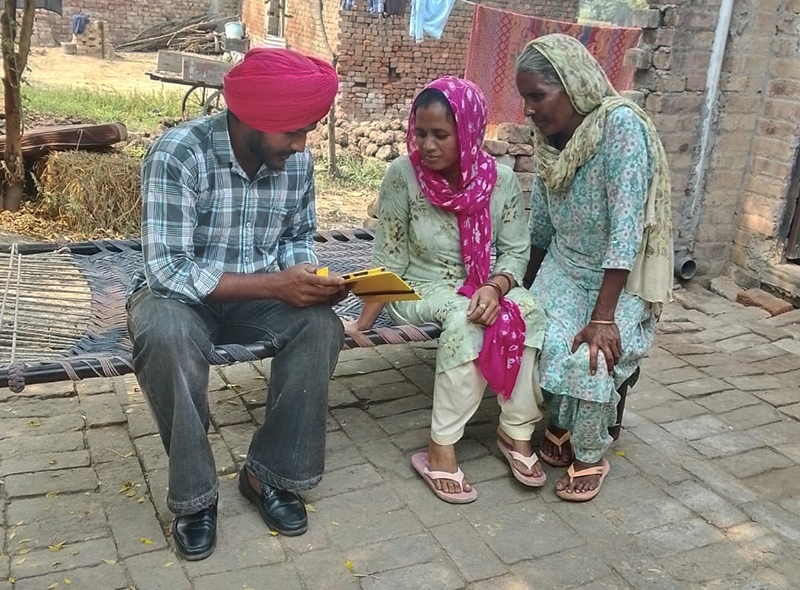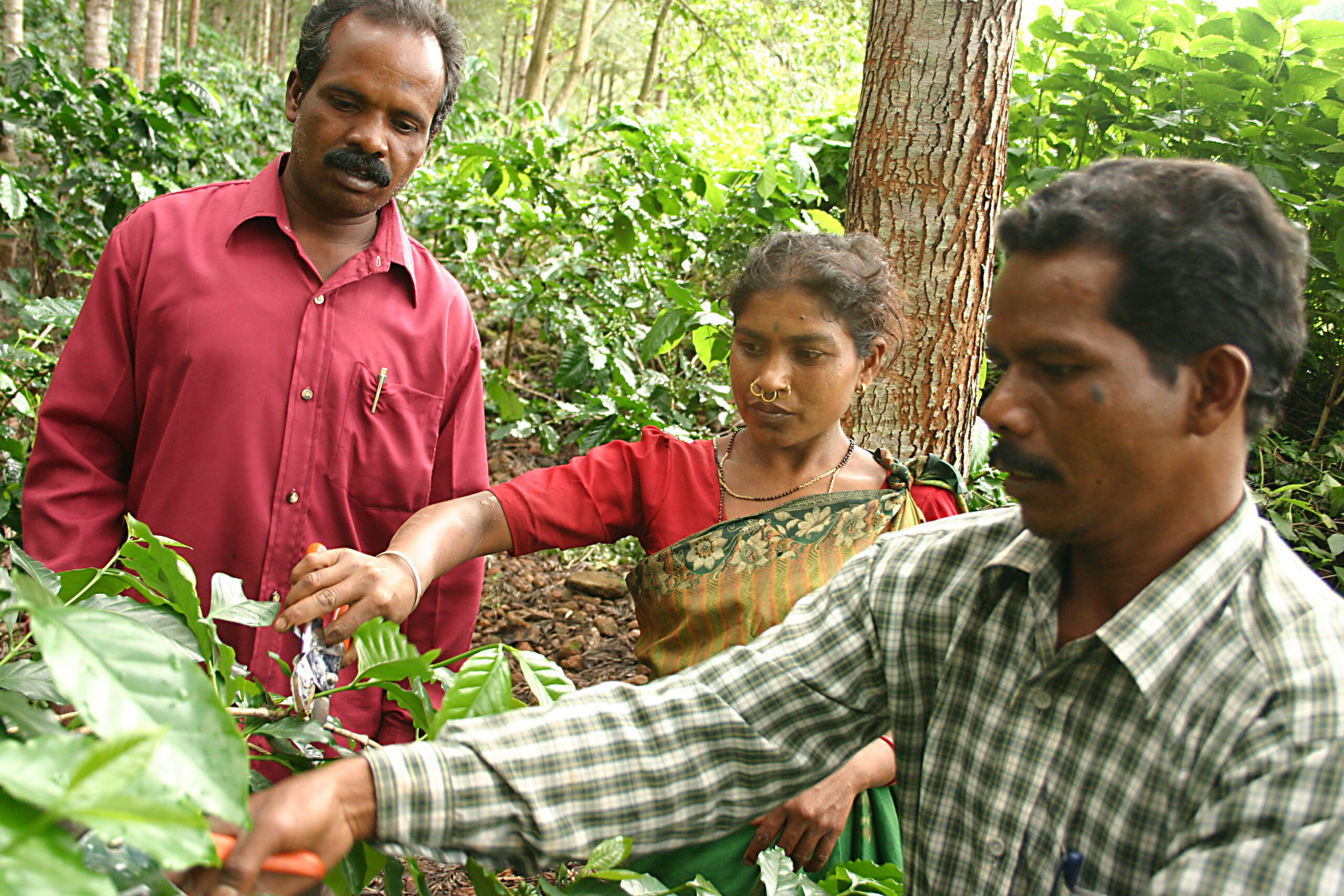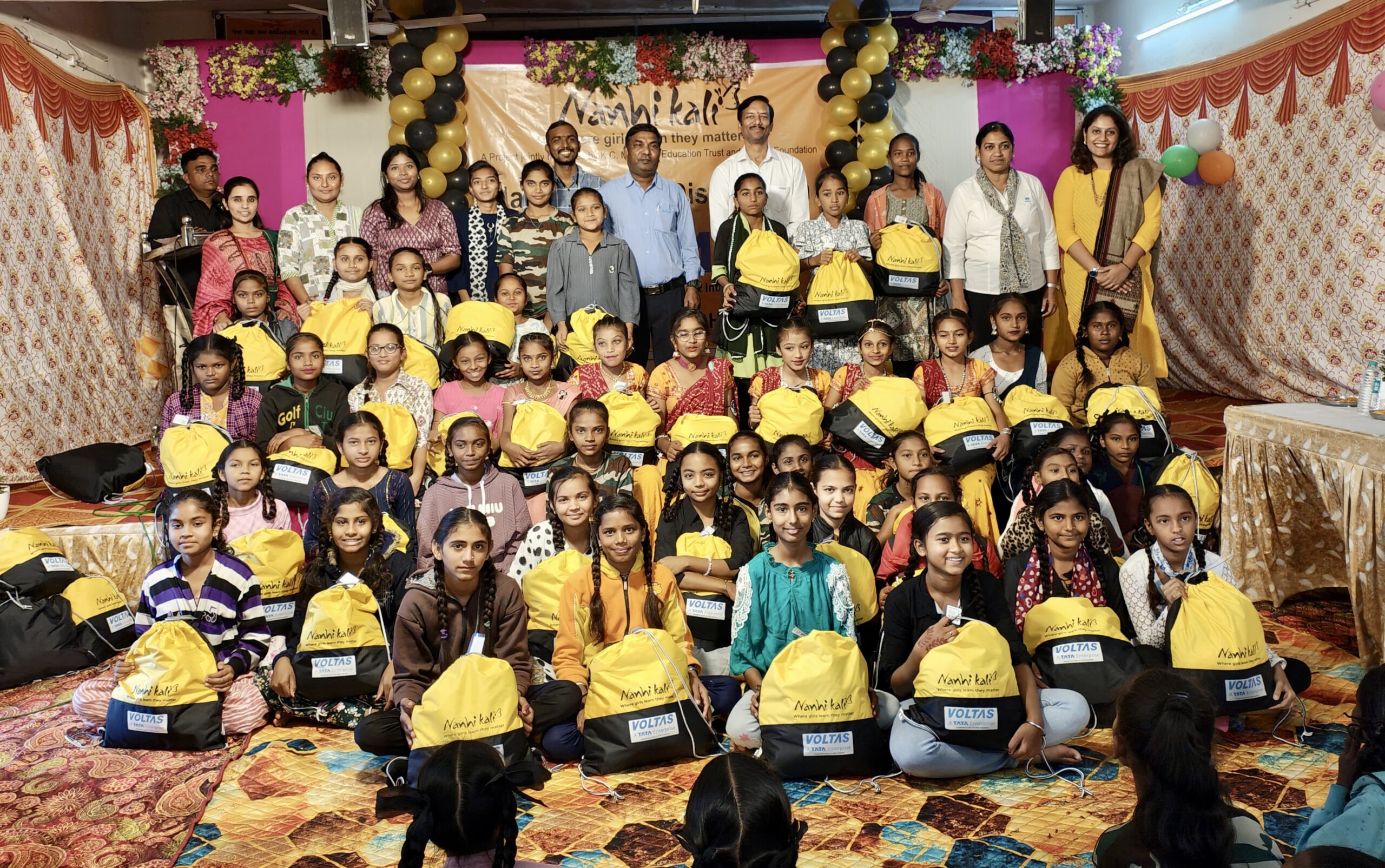Farmer engagement is one of the most crucial steps in launching an organic-regenerative agriculture project. It marks the beginning of a journey with farming communities, where our objective is twofold: to help farmers understand our work and the benefits it offers to their families and farmlands, and to ensure that we, in turn, understand their challenges and aspirations as an agricultural community. This process requires time, patience, and many rounds of interactions, and our on-field teams are key to making it happen.
By hosting several rounds of community meetings in each prospective village, our teams of household and village volunteers create multiple opportunities to explain the nature of our project, listen to the community’s perspectives on it, and answer any questions they may have. These gatherings allow us to foster open dialogue and trusted communication channels.
To complement these efforts, our teams visit farmer households to engage directly with families in a more personal and meaningful way. During these one-on-one interactions, we can share more detailed information about the project and address individual questions. By hearing directly from farmers, we gain valuable insights into their agricultural practices, including land use trends, agri-input habits, and cropping patterns, which in turn helps us understand the region better. We also prioritise conversations with women in each household, exploring their interest in homestead cultivation and identifying how training and organic inputs could support their goals. These ongoing discussions are crucial for ensuring that farmers feel informed about the project and happy to give their consent to participate.
These insights allow us to design the project in a way that addresses the unique needs of the farming community, ensuring that we are empowering farmers (especially women farmers) with the knowledge, support, and inputs that can better their livelihoods and surrounding ecosystems in the long run. The information gathered during these interactions forms the foundation of successful farmer partnerships, rooted in mutual understanding and trust.
The photographs shared here capture moments of this lengthy engagement process currently ongoing in the states of Wardha and Punjab. These are in preparation for our ‘Good Food Corner’ initiatives, where training and starter kits are provided to farmer households for starting diverse food gardens in which chemical-free, nutritious crops are grown, right in family homesteads.
Seeing these quiet moments of preparation and farmer engagement reminds us that meaningful change begins long before fields are sown and seeds are planted—it starts with hours of careful preparation, thoughtful conversations, and tireless efforts of those working behind the scenes to ensure every interaction is genuine, transparent, and productive.





